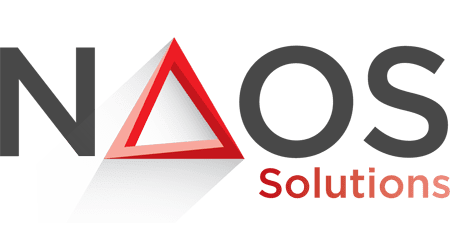HR outsourcing is a powerful tool for enhancing your Human Resources department’s efficiency and agility. If you’re an HR professional in a medium-to-large or fast-growing company in Egypt or the MENA region, you’re likely seeking ways to streamline operations, reduce costs, and focus on strategic initiatives. This article is here to help you achieve those outcomes.
With over 10 years of expertise in the industry, NAOS Talents specializes in providing insights and solutions that empower HR directors and managers to make informed decisions about outsourcing HR functions. Our extensive experience and deep understanding of the MENA market ensure you’re learning from the best in the industry.

By the end of this article, you’ll clearly understand when and why your business should consider HR outsourcing, equipping you with the knowledge to drive your organization’s growth and stability.
UNDERSTANDING HR OUTSOURCING
HR outsourcing allows you to delegate specific HR functions or the entire department to an external provider. This strategic move gives companies access to specialized expertise and streamlined operations, freeing up internal resources for core business activities.
Virtually any HR function can be outsourced, depending on your company’s unique needs and priorities.
Recruitment
Outsourcing recruitment can reduce your time-to-hire and guarantee a quality talent pipeline. This includes:
- Candidate Sourcing: Identifying and attracting potential candidates through various channels.
- Screening and Interviews: Initial screenings and interviews are conducted to ensure candidate quality.
- Onboarding: Managing the onboarding process to ensure new hires are integrated smoothly.
Payroll Management
Managing payroll in-house can be complex and time-consuming, especially in the MENA region with diverse labor laws. Outsourcing payroll includes:
- Payroll Processing: Calculating wages, deductions, and taxes accurately.
- Compliance Management: Ensuring adherence to local labor laws and regulations.
- Reporting: Providing detailed payroll reports and analytics.

Benefits Administration
Designing and administering employee benefits programs can also be resource-intensive. Outsourcing this function includes:
- Benefits Design: Creating competitive benefits packages.
- Enrollment Management: Handling employee benefits enrollment and changes.
- Compliance: Ensuring benefits programs comply with local regulations.
Training and Development
Investing in HR employee training is crucial for growth and can lead to a 218% higher income. Outsourcing training and development includes:
- Training Needs Analysis: Identifying skill gaps and training requirements.
- Program Development: Designing and delivering training programs.
- Evaluation: Measuring the effectiveness of training initiatives.

HR Consulting
Strategic HR consulting can help align your HR practices with business goals. Outsourcing HR consulting includes:
- Policy Development: Creating HR policies and procedures.
- Employee Engagement: Developing strategies to improve employee satisfaction and retention.
- Conflict Resolution: Providing expert advice on handling complex HR conflicts.
SIGNS YOUR BUSINESS IS READY FOR HR OUTSOURCING
Rapid Business Growth and the Need for Scalable HR Solutions
When your business experiences rapid growth, your HR needs can quickly outgrow your internal capabilities.
For instance, if your in-house team struggles to keep up with recruitment, onboarding, and training new employees, outsourcing can give them the scalability and expertise they need to maintain momentum.

Case Study: A retail company in Dubai experienced a 50% growth in store openings over two years. Their HR team struggled to keep up with hiring and training, delaying the launching of their new stores. By outsourcing their recruitment and training functions, they could open stores on schedule, maintain high service standards, and ensure consistent employee onboarding.
High Turnover Rates and Constant Recruitment Demands
If your company is experiencing high turnover rates, your HR team may be stuck in a never-ending recruitment cycle. That means they’re constantly scrambling to fill vacancies, leaving little time for crucial tasks like employee development or improving company culture.
This constant churn drains resources and hinders the company’s ability to innovate and grow. Outsourcing recruitment can be a game-changer in such scenarios. It allows businesses in the MENA regions to tap into a more diverse talent pool, streamline the hiring process, and ensure a steady influx of qualified candidates.
Seasonal Fluctuations in Workforce Needs
Many industries in the MENA region experience seasonal fluctuations in workforce needs. For instance, Dubai’s hospitality and tourism sector skyrockets in demand during winter when tourists enjoy the pleasant weather. This requires a temporary increase in hotel staff, tour guides, and other service personnel.
Similarly, the retail sector sees peak demand during Ramadan and Eid, needing additional staff to handle the increased customer traffic. Managing these fluctuations with an in-house HR team can be tricky since it involves hiring and training temporary staff, only to let them go when the peak season ends.
HR outsourcing allows companies to ramp up their workforce during peak seasons and scale back when needed.

Challenges in Maintaining Compliance With Labor Laws
The MENA region is known for its complex and ever-changing labor laws. Non-compliance with these labor laws can result in costly fines and legal disputes. If your HR team struggles to stay abreast of the latest regulations, outsourcing to a specialist provider can offer peace of mind and ensure your company remains compliant.
For instance, the new UAE Labor Law (Federal Decree-Law No. 33 of 2021) introduced part-time and full-time employment as a new work model. This regulation also outlined the changes companies must make in their HR guidelines to accommodate part-time workers.
An HR outsourcing team can quickly adapt your company’s rules to comply with this law and avoid costly fines.
Increasing Administrative Burdens on Your HR Team
Your in-house HR department may be overwhelmed with administrative tasks like payroll processing, benefits administration, and record-keeping. Outsourcing these tasks can free your HR team to focus on more strategic, bigger-picture initiatives.
That includes employee engagement, talent development, and other activities that drive business value.
Case study: A tech startup in Cairo outsourced its payroll and benefits administration, allowing its lean HR team to concentrate on strategic projects like employee retention programs and performance management systems.
BENEFITS OF HR OUTSOURCING
Cost Efficiency: Reducing Fixed HR Costs
Managing costs is a crucial step in the competitive MENA market. Outsourcing HR functions can significantly reduce your fixed HR costs since you’ll no longer have the expenses associated with recruiting, training, and maintaining an in-house HR team.
According to a Deloitte study, businesses that outsourced their HR functions reported an average cost savings of 14%. These savings can be reinvested in core business activities.

Access to Specialized Expertise and Advanced Technologies
HR functions require expertise in talent acquisition, compensation and benefits, employee relations, and legal compliance. Building and managing an in-house team with diverse expertise can be costly and complex. Companies allocate 25–35% of their operational expenses to HR.
Outsourcing gives your team immediate access to experienced HR workers specializing in various domains. This means you get expert advice and support without the overhead of hiring and training specialists.
Plus, outsourcing providers often invest heavily in cutting-edge HR technology platforms, with features like automated payroll processing, online benefits enrollment, and data-driven performance tracking tools. HR outsourcing allows you to leverage these technologies and stay one step ahead of the competition without the costs that come with it.
Enhanced Compliance With Local and International Laws
As mentioned, the MENA region is home to complex, ever-changing labor laws. Non-compliance can often lead to costly fines and legal battles and disrupt business operations. Outsourcing providers specialize in understanding and adhering to local and international labor laws.
For instance, in 2021, Saudi Arabia’s Labor Law underwent a significant change. This amendment included housing and transportation allowances in end-of-service benefits, also known as gratuity payments.
That means MENA businesses must adjust their unpaid leave, overtime pay, and dispute resolution accordingly. The HR outsourcing team can help ensure your company operates within this new legal framework.
Improved Focus on Core Business Activities and Strategic HR Functions
One of the biggest benefits of HR outsourcing is the ability to free up your internal HR team from administrative burdens. When your HR professionals are no longer bogged down with payroll processing, benefits administration, and compliance tasks, they can focus on strategic initiatives.
That means you’re indirectly investing in talent development, employee engagement, and organizational culture for a more motivated and productive workforce.
STEPS TO IMPLEMENT HR OUTSOURCING
Assessing Your HR Needs and Identifying Outsourcing Opportunities
Before outsourcing, you must identify your team’s pain points, areas where they’re stretched thin, and functions that could benefit from external expertise. This will help you determine which HR functions must be handed off or if the entire department must be outsourced.
- Conduct an HR Audit: Review your current HR processes and identify resource-intensive areas outside your team’s expertise.
- Consult with Stakeholders: Gather input from key stakeholders to understand their concerns and priorities.
- Analyze Costs: Compare the costs of maintaining in-house functions versus outsourcing.

Developing a Transition Plan and Setting Clear Objectives
Once you’ve identified the functions to outsource, it’s time to create a detailed transition plan. This plan should outline timelines, responsibilities, and communication channels between your company and the outsourcing provider.
- Define Objectives: Clearly state what you hope to achieve with outsourcing, such as cost savings, efficiency improvements, or access to expertise.
- Set KPIs: Establish Key Performance Indicators (KPIs) to measure the success of your outsourcing initiative. More detailed information in a previous article about Recruitment KPIs.
- Assign Responsibilities: Identify who will manage the relationship with the outsourcing provider and oversee the transition.
Choose the Right HR Outsourcing Partner
Finding the right outsourcing partner is perhaps the most critical step in the process. Look for HR providers with a proven track record in the MENA region, as they’ll better understand the local labor laws.
- Research Providers: Compile a list of potential HR outsourcing providers and evaluate their expertise, reputation, and client testimonials.
- Request Proposals: Solicit detailed proposals from shortlisted providers, including their approach, services offered, and pricing.
- Conduct Interviews: Interview potential providers to assess their compatibility with your company’s culture and values.
- Check References: Contact references to get feedback on their experience with the provider.
Engaging Stakeholders and Communicating the Benefits of Outsourcing
Successful HR outsourcing requires the support and involvement of key stakeholders, including your HR team, employees, and senior management. Don’t hesitate to communicate the benefits of outsourcing openly and transparently.
- Hold Informational Meetings: Conduct meetings with stakeholders to explain the outsourcing plan and address any concerns.
- Provide Training: Offer training sessions to help your team understand the new processes and systems.
- Create a Communication Plan: Establish a communication plan to keep stakeholders informed throughout the transition.
Monitoring the Performance of Outsourced HR Functions
Outsourcing is not a set-it-and-forget-it solution. Setting clear performance metrics and reviewing them periodically is a simple way to ensure the provider’s team meets your expectations.
- Regular Reviews: Schedule regular performance reviews with your outsourcing provider to discuss progress and address any issues.
- Solicit Feedback: Gather feedback from your internal team and employees on the effectiveness of the outsourced functions.
- Make Adjustments: Be prepared to adjust the outsourcing arrangement based on performance reviews and feedback.
CONCLUSION
Companies in the MENA region are facing growing labor and compliance challenges. The solution? HR outsourcing.
It offers a solution by empowering businesses to reduce costs, access specialized expertise, and ensure legal compliance. You can enhance your HR department’s agility and efficiency by carefully assessing your needs, developing a solid transition plan, and choosing the right outsourcing partner.
If you’re ready to hand off your HR operations for better scalability, contact NAOS Solutions today. We can help you navigate the complex nature of HR outsourcing in the MENA region on a budget.

